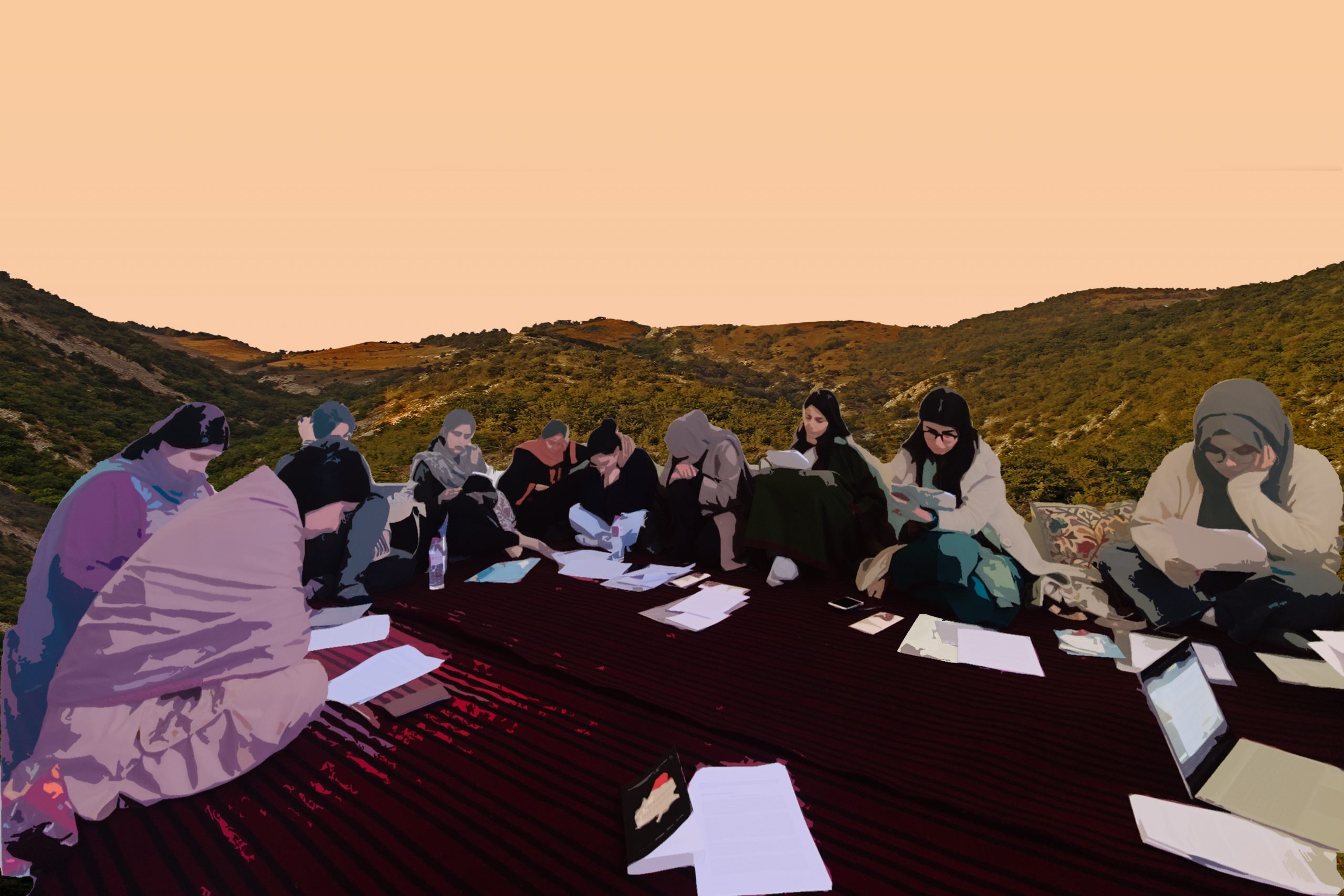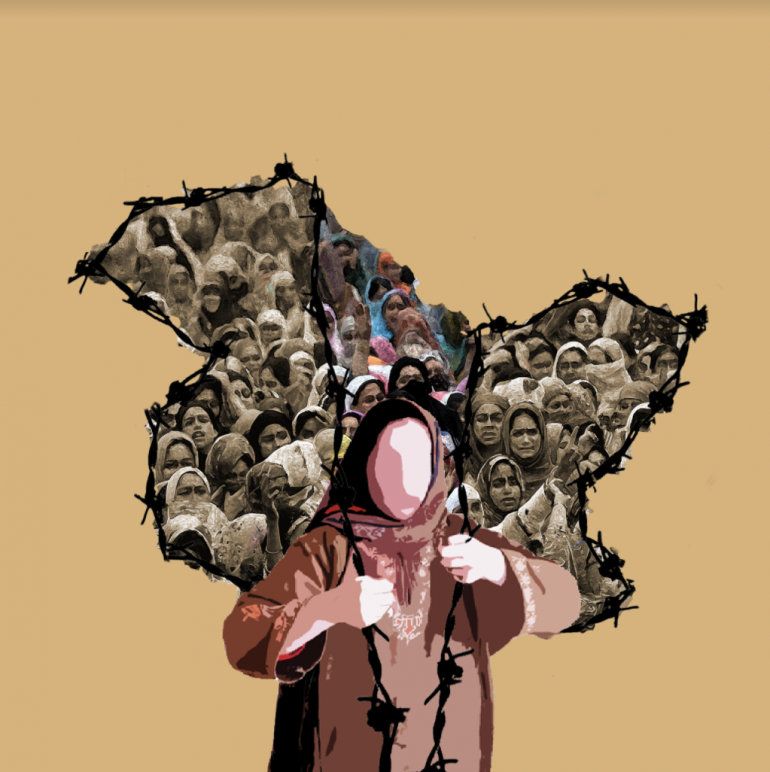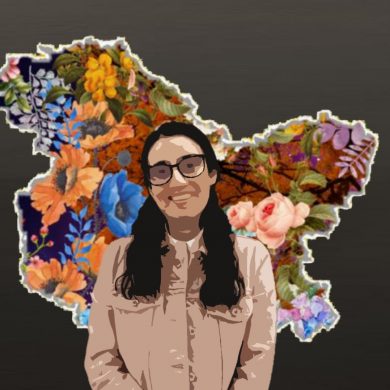On February 23rd, ZW will host a day long event to commemorate Kashmiri Women’s Resistance day. We invite 10 Kashmiri women to join us for an informal group discussion on the politics of remembrance and memory vis-a- vis the significance of the day and women’s resistance in Kashmir. We will also hold a close reading of excerpts from the book ‘Do you remember Kunan Poshpora?’ The event will conclude with a workshop on research and feminist methodologies. This event will be an opportunity for Kashmiri women to come together, forge meaningful alliances and conduct an honest exchange of ideas. We will be opening registrations for this event soon. If you are interested and available to join us in person on the 23rd Feb, watch this space more updates. The event will be held in Peer Bagh, Srinagar. Whilst we make every effort to include as many women in our journey, for now we only have 10 seats available, given the current circumstances. We will send out the invites based on a short form filled up during registration. Please note that this will be an informal, introductory event. This is not an academic event, everyone is encouraged to apply.
The medium of language will be in English, Urdu and Kashmiri.
Summary and Outcomes

Note: These are some highlights of the event and by no means all that was discussed during the day.
Zanaan Wanaan held a day-long event in Srinagar, this year, on Kashmiri Women’s Resistance day which is observed on 23rd February. It invited participation of 10 Kashmiri women through an online form, who joined us on the said date. The event was held in an informal setting to help break the ice and lay grounds for meaningful interaction and engagement. The aim was to forge long-term feminist allainces with women working on ground in Kashmir.
Timing: : 11:30 – 4:00 p.m.
Introductions- 11:30-12:15:
The session began with an introduction of the Zanaan Wanaan collective, including the work we have done so far and the upcoming projects we are currently working on. This was followed by a round of introductions. Each participant spoke about themselves, their expectations from the event and their reasons for joining us on the day. This set the scene for conveying the thought behind holding the event, the need we felt for having a physical space and meeting Kashmiri women in person on this important date. Also, to have conversations about everything that encompasses the complexity of being a woman and a Kashmiri. The conversation which was already in full swing and was then directed towards discussing the significance of the day. Several participants spoke about the representation of women’s resistance in Kashmir.
Video Screening & Discussion- 12:20-12:55:
We paused the conversation to look at a video presentation. It was a short explainer, also shared on our social media, giving a brief introduction to the history of women’s resistance in Kashmir. The video also highlighted the case of Kunan Poshpora, the progress, (or lack thereof) that was made in the pursuit of seeking justice. This was followed by a discussion on gender, militarisation and power.
Lunch- 1:00-1:30:
At around 1:00 pm, we paused for lunch and continued discussions in smaller groups.
Book Reading- 1:35-2:30:
We were delighted to have two co-authors of the book ‘Do you remember Kunan Poshpora?’ join us for the event- Ifrah Butt and Natasha Rather. Ifrah held a reading of selected excerpts from the book after which we conducted a purposeful Q&A session. Natasha spoke about the people of Kunan Poshpora being pioneers in their fight, who pushed for complaints to be filed, followed up with the case for years, without which this incident would have gone unreported, like countless others. They gave us an insight into their journey as members of the Support Group for Justice for Kunan Poshpora. They made some pertinent points about addressing the questions surrounding sexual violence and the social challenges that accompany it in our society. We also discussed the façade of redressal mechanisms in the backdrop of conflict.The group also delved into a conversation on the neglected trauma that survivors of sexual and/or any other violations have to go through by reiterating the very incident to ‘seek justice.’
Workshop on Feminist Research Methodologies- 2:35-4:00:
After the book reading we held a two-part workshop, with an introduction to research methodologies by Mariyeh Mushtaq. This was a step-by-step breakdown of what comprises research in social sciences, different paradigms/philosophies of research and the methods of doing research work, etc. Dr. Hafsa Kanjwal joined virtually to speak about decolonial feminist methodologies and the use of auto-ethnographic research in the context of Kashmir. She spoke at length about the various processes and challenges in decolonial feminist work. She emphasised the importance of accountability in research work and an ethical approach. She engaged with the participants during the Q & A session where she addressed the difficulties that Kashmiri researchers are posed with, in, and outside Kashmir.
KEY TAKEAWAYS:
During this session we addressed a few key issues that Kashmiri women are faced with:
- The problems with the representation and glorification of (a)political Kashmiri women in the Indian media.
- Unpacking the idea of empowerment where Kashmiri women are presented as hyper-entrepreneurial subjects. One of the participants brilliantly pointed out that we rarely see a program dedicated to a baker, writer, artist, athlete etc. from India . This focus on individual success stories creating icons out of women also aids the narrative of normalcy propagated in the Indian media. This is often seen in news items every other day which highlight the many “firsts” of Kashmiri women.
- All aspects of life in Kashmir are tied to the political situation in the region. Therefore, to analyse any event, experience, situation in isolation is an inherently flawed lens of understanding life in Kashmir.
- The disproportionate backlash on contested issues received by Kashmiri women which is loaded with misogyny, especially, on online forums.
- The lack of physical spaces for women in Kashmir to gather and discuss freely and the importance of building such spaces.

